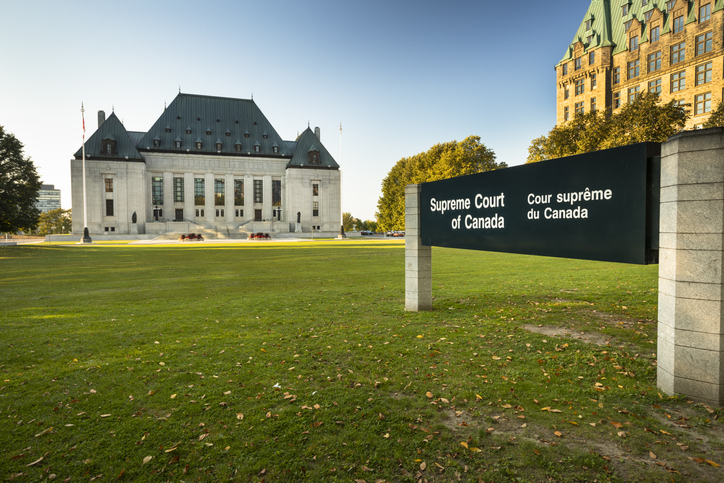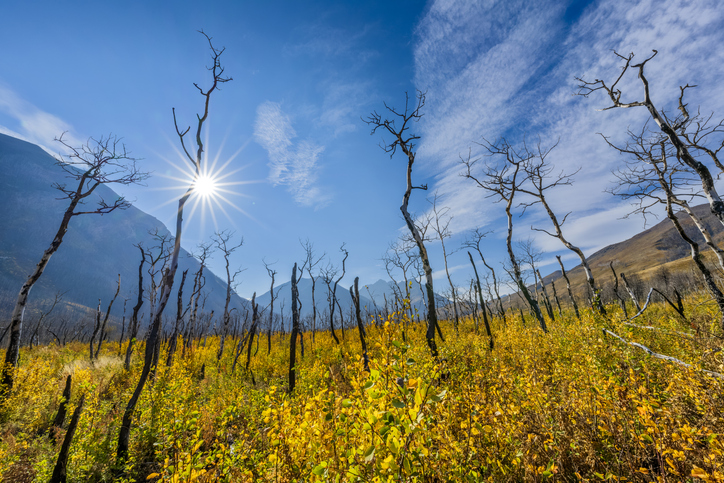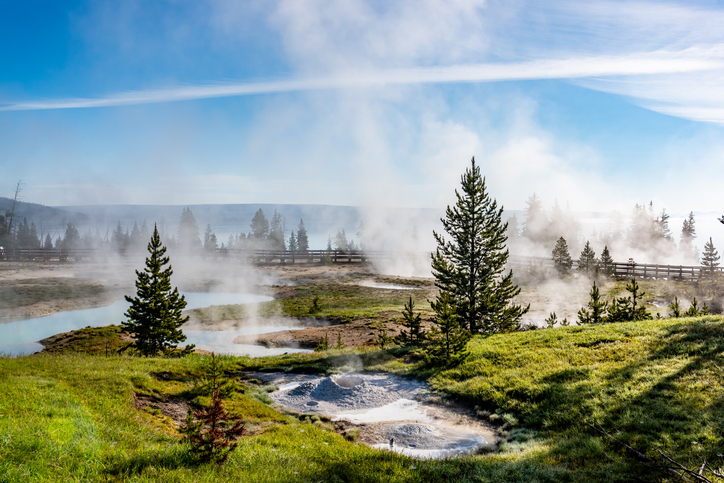Monday, September 29, 2025
The youth-led Mathur case is heading back to court. Today, the Supreme Court of Canada has rejected Ontario’s request to appeal a landmark decision from the Ontario Court of Appeal. The case will now go back to the Ontario Superior Court of Justice, where the court will be asked to provide meaningful remedies for the government’s alleged violation of Charter rights.
The seven youth bringing this case, backed by lawyers at Ecojustice and Stockwoods LLP, are celebrating the ruling and seeking a swift and final resolution that vindicates their constitutional rights and meets the pressing urgency of the climate crisis.
The youth launched the landmark case in 2019, arguing that Ontario’s actions have consistently put their constitutional rights at risk from the devastating impacts of climate change. When the Ontario government drastically weakened its climate targets, Sophia Mathur, Beze Gray, Zoe Keary-Matzner, Shelby Gagnon, Shaelyn Wabegijig, Madison Dyck, and Alex Neufeldt turned to the courts in the first case of its kind in Canada, which claimed the government’s actions violate Ontarians’ Charter rights to life, liberty, and security of the person. When governments’ climate conduct violates Charter protected rights, they argue, the courts have the duty to step in.
“Throughout history, it’s often fallen on young people to fight for what’s right. I’m fighting for my future, and for the future of every young person in Canada,”said youth applicant Mathur. “I was only twelve years old when we took Ontario to court for the first time, but I was already witnessing the ways climate change was impacting my community, our way of life, and my dreams for the future. We are ready to be back in court and feel hopeful that we will get the fulsome resolution and decisive victory we have spent the last six years fighting for.”
Fraser Thomson, Ecojustice lawyer, adds: “We are in a climate emergency that threatens our homes, health, way of life, and our futures. Governments, like Ontario, have repeatedly shown that they are unwilling to take this threat seriously — their failure puts us all at risk. That is why our seven youth clients have turned to the court. When governments violate Charter protect rights on such a massive scale, it’s not only the role of courts to hold them accountable — it’s their duty.”
Their case has already had far-reaching implications on Canadian law, and is set to do so again. The youth applicants successfully fought off government attempts to have their case thrown out of court, making theirs the first climate Charter case to be heard and decided on its merits. The case made history again in October 2024, when a groundbreaking decision from Ontario’s highest court concluded that government climate change targets must comply with the Charter, and reaffirmed that Ontario’s actions are putting lives at risk. In December, the provincial government tried to appeal Ontario’s top court’s decision — today the Supreme Court of Canada refused.
By refusing to take up Ontario’s appeal, the Supreme Court has confirmed the Ontario Court of Appeal ruling is the law of the land, marking a significant victory for climate litigation in Canada. Now, the delay is over and Ontario must face the youths’ constitutional claims head on. Ontario will have to answer for fuelling the climate crisis and for its inadequate emissions target. Backed by these findings from Ontario’s top court that climate targets must adhere to the Charter, the seven youth behind this case are optimistic that justice will be served.
“By refusing to hear Ontario’s appeal, the Supreme Court of Canada has preserved the Ontario Court of Appeal’s historic decision that governments’ climate change targets must not exacerbate the risks to Canadians’ lives and health – which is exactly what the lower court said Ontario’s weakened target does,” said Stepan Wood, Professor and Canada Research Chair in Law, Society & Sustainability, University of British Columbia. “The Supreme Court has thus set the stage for these young people to score an historic victory for environmental justice and government accountability when the case is re-heard by the Ontario Superior Court of Justice.”
Background
- Mathur et al. is a case brought on the basis of rights protected under the Canadian Charter of Rights and Freedoms. These young people went to court to argue that when the government repealed relatively strong carbon pollution reduction targets and replaced them with one inadequate target for 2030, it violated Ontario youth and future generations’ constitutional rights to life, security of the person, and equality.
- In 2018, the provincial government set an extremely weak 2030 target: to reduce its emissions by 30 per cent below 2005 levels. That target would allow an additional 200 million tonnes of dangerous emissions into the atmosphere. The scientific consensus states that emissions reductions needed to avoid climate disaster is at least 45 per cent below 2010 levels by 2030, which equates to at least a 52 per cent reduction of Ontario’s 2005 emission levels.
- The seven applicants launched the case in 2019. Following attempts by the Ontario government to have it thrown out, they made history by being the first climate lawsuit based on Charter-protected rights to be heard on its merits in a Canadian court in September 2022. The youth filed the most extensive evidentiary record of how climate change will impact Canadians that has ever been put before a Canadian court.
- In April 2023, the Ontario Superior Court dismissed the application but made several groundbreaking findings, including on the evidence about climate change’s dire impact on Canadians.
- The Ontario Court of Appeal heard the youths’ appeal of this lower court decision in January 2024. On October 17, 2024, the Court of Appeal for Ontario ruled in favour of the youth Applicants and ordered the lower court to re-assess the case.
- A copy of the Ontario Court of Appeal’s decision is available here. A summary of the youth’s appeal factum is available here.
- On December 16, 2024, the Ontario government filed an application for leaveto appeal the Mathur et. al case to the Supreme Court of Canada.
- On January 27, 2024, the youth, backed by lawyers from Ecojustice and Stockwoods LLP, submitted a cross-appeal asking Canada’s top court to hear all aspects of this case and come to a final, fulsome resolution.

For a link to previous coverage of this case, please click here.
Featured image credit: Getty Images












